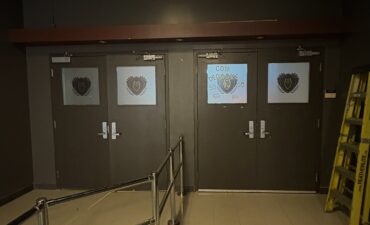
Photo by Karlie McGeough
Every day, Regina’s homeless population relies on various organizations to serve them food, provide them shelter and medical services.
Until the creation of the Regina Survival Guide and Map, the city’s most vulnerable people were left with very few tools to point them in the right direction for help.
Now, a critical navigational tool for vulnerable people in the city has been given a new lease on life.
The City of Regina has partnered with Dr. Mark Spooner, an educational psychology professor at the University of Regina, to fund the Regina Survival Guide and Map.
The map acts as a quick reference tool for individuals that might be homeless or experiencing vulnerabilities. It can include various resources to address basic needs such as food security or emergency shelter
Spooner, who had taken this on as a personal project, constantly had to look for new funding partners every time he wanted to update it. However, in March of 2021, it was announced that the City of Regina had taken the map on to ensure its reach would continue in the city.
“It was really nice that the City of Regina could take this over and it could have some longevity,” said Spooner.
Kelly Husack, a policy analyst with the City of Regina said partnering with Spooner’s initiative was an easy decision.
“Marc [Spooner] wanted to see that his resource was able to continue on and we were able to allocate the time and resources to it so it just kind of made sense that we could house it on the website and because we work very closely with partners in the community, it was a natural fit for us to pick it up and keep going,” said Husack.
“We know that individuals in our community and just the nature of homelessness itself is that it is not linear, it fluctuates and it can happen to anyone at any given time so this tool really is helpful for those individuals who might need to find something quick.”
Spooner said the idea behind the map was to create “a living document” that would continue to evolve over time.
“I mean that pun as in it helps people stay alive but it also evolves, changes and gets modified over time to meet the needs of that current situation,” said Spooner.
One of the most important aspects of the guide and map is that it is easy to use and read.
“Part of the features of the map I thought it would be important that it was icon–based as well as text so that even if you didn’t speak the language or had trouble reading, you would know where to go,” said Spooner.
The Regina Survival Guide and Map is available online and looking forward, Husack said the resource will be regularly updated.
“With the natural fluctuation of services, the intent is to update it as needed and as significant changes are made,” Said Husack.
“If organizations notice that there is incorrect or outdated information, they can get in contact through Service Regina to notify us of those changes and we will keep record and incorporate them in the upcoming update.”















